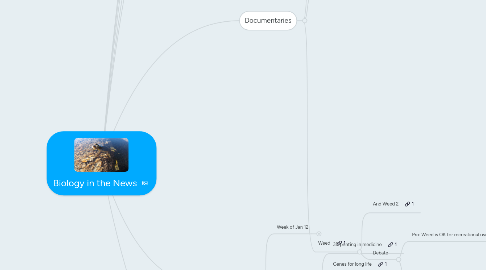
1. 1. How manuscripts get published in the scientific literature
1.1. Idea
1.1.1. Observation
1.1.2. Theory
1.1.2.1. What is a theory?
1.1.2.1.1. How do scientists use this term?
1.1.2.2. What is a hypothesis?
1.2. Proposal
1.2.1. Funding agencies
1.2.1.1. NSF
1.2.1.2. NIH
1.2.1.3. EPA
1.2.1.4. USDA
1.2.1.5. DOE
1.2.1.6. DOD
1.2.1.7. NASA
1.3. Experiment
1.4. Write manuscript
1.4.1. Types of manuscripts
1.4.1.1. Data paper
1.4.1.2. Review
1.4.1.3. Idea
1.5. Peer review
1.6. $$$
2. 2. How scientific publications reach the media
2.1. Press release
2.2. Embargo
2.3. Media blitz
2.4. Examples
2.4.1. Ants in Brazil
2.4.2. Frogs and disease
2.4.3. Virtual lizards
2.4.4. Shrinking salamanders
2.4.4.1. The article
2.4.4.2. Altmetric
2.4.4.3. http://newsstand.clemson.edu/mediarelations/study-salamanders-shrinking-due-to-climate-change/
3. 3. Types of media outlets
3.1. Printed media
3.1.1. Scientific journal
3.1.2. Scientific book
3.1.3. Popular media
3.1.3.1. Newspaper
3.1.3.2. Magazine
3.1.3.3. Book
3.2. Online media
3.2.1. Scientific journal
3.2.2. News
3.2.3. Blog/Webpage
3.2.4. Social media
3.2.4.1. Twitter
3.2.4.2. Facebook
3.2.4.3. Others
3.3. Radio/Podcasts
3.4. Television
4. 4. How to search for biological news
4.1. Search engines
4.1.1. Google Scholar
4.2. Databases
4.2.1. Medline/Ovid
4.2.2. Web of Knowledge
4.2.3. Scopus
4.3. Webpages
4.3.1. News aggregators
4.3.1.1. Science Daily
4.3.2. NYTimes
4.3.3. Guardian
4.3.4. Science
4.3.5. Nature
4.3.6. PLoS
4.4. Social Media
4.4.1. Twitter
5. In the news (2014)...
5.1. Week of Jan 27
5.1.1. Penguins
5.1.2. Neanderthals and us
5.1.3. Monarchs going extinct
5.1.4. Stem cells
5.1.5. Honeybee collapse
5.1.6. Antioxidants and cancer
5.1.7. Climate change and wine
5.2. Week of Feb 3
5.2.1. Brain science
5.2.2. Fight club for flies
5.2.3. Climate change and you
5.2.4. Global cancer problem
5.2.5. Men more likely to get flu
5.2.6. Sugar makes you fat...and sick
5.3. Week of Feb 24
5.3.1. Immunizations down...old diseases up
5.3.2. Invasive Zebra Mussels
5.3.3. Super Size Me
5.3.4. Old dads and mental illness
5.3.5. Scientist weigh in on climate...again
5.3.6. Should you have your ovaries removed?
5.3.7. Dad + mom + mom = baby
5.3.8. Ancient Whale Graveyard
5.3.9. Can animals keep a beat?
5.3.10. Back from the dead
6. Course Syllabus
6.1. Weekly reflections
6.2. Science journal
7. Documentaries
7.1. Frogs: The Thin Green Line
7.1.1. Climate change...is it real?
7.1.2. Evolution in action
7.1.3. Chytrid
7.1.3.1. New species infects salamanders
7.1.3.2. Policy issues
7.1.3.3. Op-ed by scientists
7.1.3.4. Primary literature
7.1.3.5. Questions to answer in journal
7.1.3.5.1. What's in the news?
7.1.3.5.2. What's cool or controversial about this news?
7.1.3.5.3. What's the science behind the news?
7.1.3.5.4. What are the key terms? What do they mean? Explain any unfamiliar concepts (you might need to look these up)
7.1.3.5.5. Why should I care? How does it relate to me?
7.1.4. Debate topic: Are EPA levels of atrazine safe?
7.1.4.1. Questions to consider
7.1.4.1.1. What is Atrazine?
7.1.4.1.2. What is a safe dose of Atrazine?
7.1.4.1.3. What are the health risks of Atrazine?
7.1.4.1.4. Why do studies find conflicting results?
7.1.4.1.5. Who performs the studies?
7.1.4.1.6. Who pays for the studies?
7.1.4.1.7. Could the effects of Atrizine be cause by something else?
7.1.4.1.8. Would you drink water which contains atrizine at or below EPA suggested levels?
7.1.4.1.9. What are the effects of atrizine in the environment?
7.1.4.1.10. Where is artisan found in the environment?
7.1.4.1.11. How should Atrizine be regulated?
7.1.4.1.12. What are the benefits of Atrizine?
7.1.4.1.13. Do the benefits offset the costs?
7.1.4.2. Useful links
7.1.4.2.1. Preserving environmental health and scientific credibility: a practical guide to reducing conflicts of interest
7.1.4.2.2. Scientific American
7.1.4.2.3. Rohr and McCoy 2010
7.1.4.2.4. EPA
7.1.4.2.5. Tyrone Hayes's outreach site
7.1.4.2.6. An Anti-Tyrone Hayes site
7.1.4.2.7. New Yorker
7.1.4.2.8. Syngenta
7.1.4.2.9. NRDC
7.1.4.2.10. NYTimes
7.1.4.2.11. Google Scholar
7.1.4.2.12. Web of Science
7.2. The Vaccine War
7.2.1. Debate topic: Where is the line between personal freedom and social responsibility?
7.2.1.1. Questions to consider
7.2.1.1.1. How do vaccines work?
7.2.1.1.2. What are the potential complications?
7.2.1.1.3. What are the potential benefits?
7.2.1.1.4. Who's at risk if not vaccinated?
7.2.1.1.5. What are the current laws?
7.2.1.1.6. What are the harmful ingredients in vaccines?
7.2.1.2. Useful links
7.2.1.2.1. Wakefield study
7.2.1.2.2. Scientific American
7.2.1.2.3. The ethics of opting out
7.2.1.2.4. Side effects/risks of vaccines (CDC)
7.2.1.2.5. Childhood vaccines: tough questions straight answers
7.2.1.2.6. Vaccine controversies (Wikipedia)
7.2.1.2.7. Anti-vaccination sites
7.2.1.2.8. Law & Order SVU: "Selfish"
7.2.1.2.9. ProCon
7.3. Weed
7.3.1. And Weed 2
7.3.2. Debate
7.3.2.1. Pro: Weed is OK for recreational use
7.3.2.1.1. If cannabis is not legal, then neither should alcohol be legal
7.3.2.1.2. At what age should cannabis be legal for recreational use?
7.3.2.2. Con: Weed is only OK for medical use
7.3.2.2.1. Alcohol should still be legal for recreation
7.3.2.2.2. At what age should cannabis be legal for medical use?
8. In the News
8.1. Week of Jan 12
8.1.1. Extinctions in the Ocean
8.1.2. Humans and the Anthropocene
8.1.3. Exercise and Health
8.1.4. Coral Reefs in danger
8.1.5. Zoology in the Internet Age
8.1.6. Head to the Hills
8.1.7. Flu shots
8.2. Week of Jan 26
8.2.1. 3D printing in medicine
8.2.2. Genes for long life
8.2.3. Snakes older than we thought
8.2.4. Unconscious thought not so smart
8.2.5. Mickey Mouse and Measles
8.2.6. Bees and health
